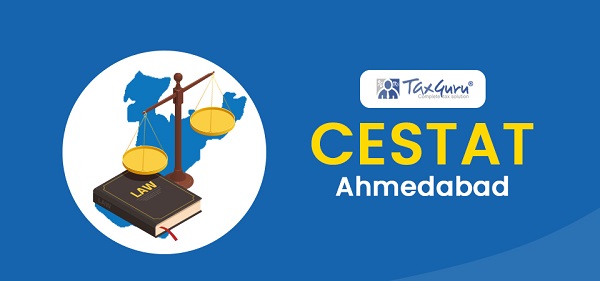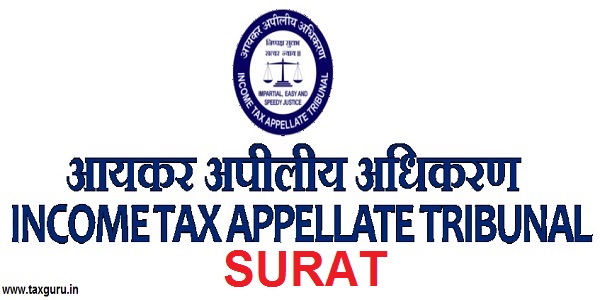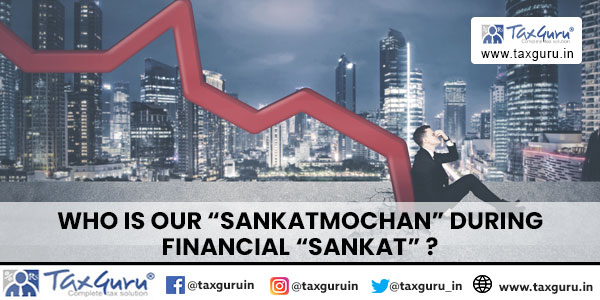 Section 271J-Penalty on professionals for furnishing incorrect information in statutory report or certificate should be removed
Section 271J-Penalty on professionals for furnishing incorrect information in statutory report or certificate should be removed
As per Finance Bill 2017 w.e.f 01.04.2017 i.e FY 2017-18 (AY 2018-19) , if an accountant or a merchant banker or a registered valuer, furnishes incorrect information in a report or certificate under any provisions of the Act or the rules made thereunder, the Assessing Officer or the Commissioner (Appeals) may direct him to pay a sum of ten thousand rupees for each such report or certificate by way of penalty. [ section 271J ]
The thrust of the Government in recent past is on voluntary compliance. Certification of various reports and certificates by a qualified professional has been provided in the Act to ensure that the information furnished by an assessee under the provisions of the Act is correct. Various provisions exist under the Act to penalise the defaulting assessee in case of furnishing incorrect information. However, there exist no penal provision for levy of penalty for furnishing incorrect information by the person who is responsible for certifying the same.
In order to ensure that the person furnishing report or certificate undertakes due diligence before making such certification, it is proposed to insert a new section 271J so as to provide that if an accountant or a merchant banker or a registered valuer, furnishes incorrect information in a report or certificate under any provisions of the Act or the rules made thereunder, the Assessing Officer or the Commissioner (Appeals) may direct him to pay a sum of ten thousand rupees for each such report or certificate by way of penalty.
It is further proposed to define the expressions “accountant”, “merchant banker” and “registered valuer”. It is also proposed to provide through amendment of section 273B that if the person proves that there was reasonable cause for the failure referred to in the said section, then penalty shall not be imposable in respect of the proposed section 271J.
These amendments will take effect from 1st April, 2017.
Extract of Clause 86 of Finance Bill 2017 – section 271J
Insertion of new section 271J.
Penalty for furnishing incorrect information in reports or certificates.
86. After section 271-I of the Income-tax Act, the following section shall be inserted, namely:—
‘271J. Without prejudice to the provisions of this Act, where the Assessing Officer or the Commissioner (Appeals), in the course of any proceedings under this Act, finds that an accountant or a merchant banker or a registered valuer has furnished incorrect information in any report or certificate furnished under any provision of this Act or the rules made thereunder, the Assessing Officer or the Commissioner (Appeals) may direct that such accountant or merchant banker or registered valuer, as the case may be, shall pay, by way of penalty, a sum of ten thousand rupees for each such report or certificate.
Explanation.––For the purposes of this section,—
(a) “accountant” means an accountant referred to in the Explanation below sub-section (2) of section 288;
(b) “merchant banker” means Category I merchant banker registered with the Securities and Exchange Board of India established under section 3 of the Securities and Exchange Board of India Act, 1992;
(c) “registered valuer” means a person defined in clause (oaa) of section 2 of the Wealth-tax Act, 1957.’.
Extract of Clause 87 of Finance Bill 2017
87. Amendment of section 273B.
In section 273B of the Income-tax Act, after the word, figures and letter “section 271-I,”, the word, figures and letter “section 271J,” shall be inserted.
This Section should be opposed by Chartered Accountants on following Grounds:-
Ground-1:-
Any professional cannot Guarantee his/her Work:-
Any Chartered Accountant cannot guarantee his/her work. He / She can make his opinion to the best of his knowledge and belief and material facts and documents provided by his/her client and issue a Report/Certificate on that.
A bench (Supreme Court) of Justices P Sathasivam and Ranjan Gogoi gave this judgment while dismissing the CBI’s appeal against an Andhra Pradesh High Court order quashing criminal proceedings against an advocate for rendering legal opinion on genuineness of title deeds for sanction of loans, which resulted in a multi-crore loan fraud involving a nationalized bank said as under:-
“A lawyer does not tell his client that he shall win the case in all circumstances. Likewise, a physician would not assure the patient of full recovery in every case. A surgeon cannot and does not guarantee that the result of surgery would invariably be beneficial, much less to the extent of 100% for the person operated on,” the bench said.
Quoting an earlier judgment, the court said it was not necessary for every professional to possess the highest level of expertise in that branch which he practiced. It quoted another judgment of the SC, in which it had ruled that “mere negligence unaccompanied by any moral delinquency on the part of a legal practitioner in the exercise of his profession does not amount to professional misconduct“.
This principle should be applied to all professionals including Chartered Accountants also.
Ground-2
AO has already powers of Special Audit:-
The Assessing officer has already Powers to get Accounts Audited u/s 142(2A) of the Income Tax Act, 1961 in case of complexity of accounts, doubt on correctness of accounts etc. When AO has such vast powers already given by the Act, there is no need for such penal provisions on professionals. Where AO is satisfied on correctness of accounts/audit reports/certificate, he may order for Special Audit u/s 142(2A).
Audit U/s 142(2A)
Section 142(2A) the Income Tax Act, 1961 (‘Act’ for short) provides for special audit that may be ordered by the Assessing Officer is the accounts are complex.
Section 142(2A) the Act, provides that if, at any stage of the proceedings before him, the Assessing Officer, having regard to the-
- nature and complexity of the accounts,
- volume of the accounts,
- doubts about the correctness of the accounts,
- multiplicity of transactions in the accounts or specialized nature of business activity of the assessee, and
- the interests of the revenue,
is of the opinion that it is necessary so to do, he may, with the previous approval of the Chief Commissioner or Commissioner, direct the assessee to get the accounts audited by an Chartered Accountant nominated by the Chief Commissioner or Commissioner in this behalf and to furnish a report of such audit in the prescribed form duly signed and verified by such accountant and setting forth such particulars as may be prescribed and such other particulars as the Assessing Officer may require. The Assessing Officer shall not direct the assessee to get the accounts so audited unless the assessee has been given a reasonable opportunity of being heard.
Ground-3:-
Harassment of Chartered Accountants:-
This Section will empower AO/CIT (Appeal) in every case of addition of Income to harass Chartered Accountants along with Assessee. There are many cases where Audit has been conducted properly and during scrutiny Accounting data is corrupted and evidences has been misplaced by Assessee and AO made ad-hoc additions in such cases. In such cases, Chartered Accounts have to suffer without any guilt intention/with professional misconduct.
Ground-4:-
Exiting Robust System to penalize its Member for Mis-conduct/Negligence under Act of Parliament (Chartered Accountants Act,1949)
Every member of Institute of Chartered Accountants of India is abide by Chartered Accountants Act, 1949 which has a robust system to penalize its member for professional misconduct/negligence. This there is no need to penalize Chartered Accountants under various Laws separately.
In View of above discussions this provision must be opposed by all the Chartered Accountants.
Disclosure: These are the personal views of Author.





















As per the instruction of District Heallth Society NHM, (CMO being principal employer ) advised to deposit TDS U/s.192 B. . The TDS Return filing work has been assigned to a C.A. by the Employer but the C.A. Intensionaly / deliberatly on his own deposited all TDS return U/s 194 J without confirming the matter with CMO or prior approval for the same. In such case what action can be taken against that Chartered Accountant.
The penalty amount is quite meagre comparing with thousand of crores of rupees tax evasion done by these cheat accountants through issue of fake certificates and ill advising to clients. They should be heavily penalized apart from launching of prosection.
Against the allegation of mandatory CA Certificates in Income-Tax Act, CBDT introduced penalty U/s 271J Rs.10,000/- on Chartered Accountants for furnishing incorrect Certificates/Reports in Finance Act, 2017. This action of CBDT is only an eye wash against the allegation made. In reality, now fees for signing Tax Audit Certificate increased by Rs.10,000/- & it has become one more cost burden to the Tax Payer. Problem of approaching two tax professionals for giving compliance not yet solved by CBDT rather Tax Audit Certificate Form No.3CD revised and complicated by CBDT. Recently, on the instructions of ICAI, President of Shimoga CA Association gave specific instructions to CAs not to sign for related tax professionals. This intent of ICAI is evident from Page No.4 & 5 of ICAI letter Dt.29.01.2013 addressed to CBDT enclosed to this grievance.